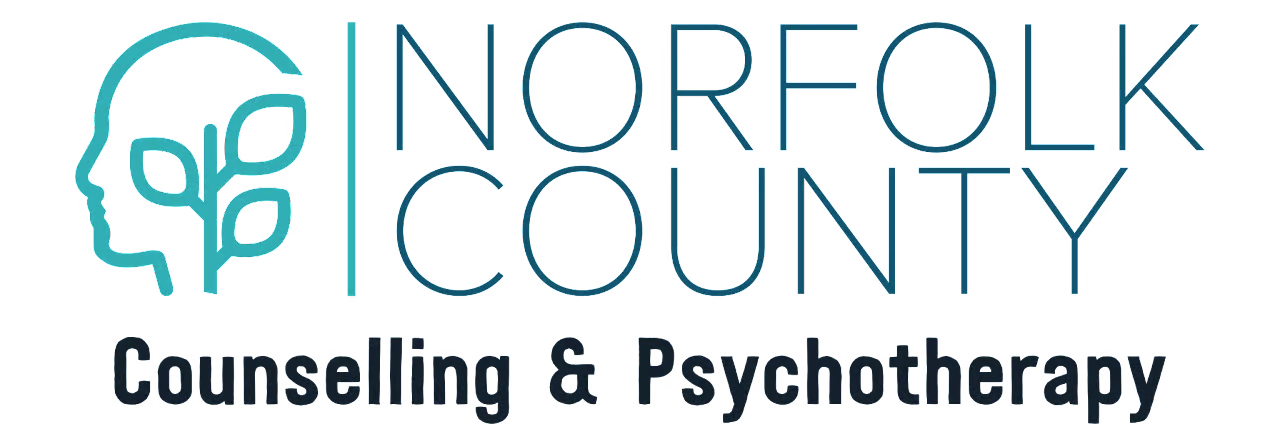Our Services
Providing Therapy to Norfolk County
We serve children, adolescents, adults, and seniors via individual, couples and family sessions.
We have many different types of therapy to help heal the root of your issue. As every patient has their own individual path to optimal mental health.
- Confidentiality
- Client Centered Care
- Loyalty, Integrity & Compassion
Eye Movement Desensitization & Reprocessing (EMDR)
Eye Movement Desensitization and Reprocessing (EMDR) is a psychotherapy approach designed for working with distressing or traumatic memories. The theory behind EMDR is that many psychological difficulties are the result of distressing life experiences which have not been stored in memory properly and are said to be unprocessed or blocked. These traumatic memories may need some help to become processed, and EMDR is one way to do this.
Internal Family Systems (IFS)
The underlying concept of this theory is that we all have several parts living within us that fulfill both healthy and unhealthy roles. Life events or trauma, however, can force us out of those healthy roles into extreme roles. IFS therapy can help with general life stressors like grief, relationship, and career issues, and improve resilience and self-esteem. Though it is non-pathologizing (does not reduce a client to their diagnosis), it may treat several mental health issues and conditions.
Cognitive Behavioural (CBT)
Cognitive behavioural therapy (CBT) is a form of psychological treatment that has been demonstrated to be effective for a range of problems including postpartum mood disorder, chronic pain, insomnia, depression, anxiety disorders, alcohol and drug use problems, marital problems, eating disorders, and severe mental illness. Numerous research studies suggest that CBT leads to significant improvement in functioning and quality of life. In many studies, CBT has been demonstrated to be as effective as, or more effective than, other forms of psychological therapy or psychiatric medications.
Dialectical (DBT)
Dialectical means “the existence of opposites.” In DBT, people are taught two seemingly opposite strategies: acceptance (i.e., that their experiences and behaviours are valid), and change (i.e., that they have to make positive changes to manage emotions and move forward).
- mindfulness: the practice of being in the present and acknowledging thoughts, feelings and behaviours as they happen, without trying to control them
- distress tolerance: the process of learning how to cope during a crisis, especially when it is impossible to change, and accepting a situation as it is, rather than how it should be
- interpersonal effectiveness: the ability to ask for what a person needs and to say no when necessary, while still maintaining self-respect and relationships with others
- emotion regulation: the ability to manage emotions so that they do not control thoughts and behaviours.
Acceptance and Commitment (ACT)
Acceptance and commitment therapy (ACT) is a type of psychotherapy that emphasizes acceptance as a way to deal with negative thoughts, feelings, symptoms, or circumstances. It also encourages increased commitment to healthy, constructive activities that uphold your values or goals.
ACT therapists operate under a theory that suggests that increasing acceptance can lead to increased psychological flexibility. This approach carries a host of benefits, and it may help people stop habitually avoiding certain thoughts or emotional experiences, which can lead to further problems
Solution Focused Brief Therapy (SFBT)
Solution-Focused Brief Therapy (SFBT) is a short-term goal-focused evidence-based therapeutic approach, which incorporates positive psychology principles and practices, and which helps clients change by constructing solutions rather than focusing on problems.
Mindfulness-Based (MBCT)
Mindfulness-based cognitive therapy (MBCT) is a type of psychotherapy that involves a combination of cognitive behavioral therapy (CBT), meditation, and the cultivation of a present-oriented, non-judgmental attitude called “mindfulness.”
Person-Centered
Person-centered therapy, also known as Rogerian therapy or client-based therapy, employs a non-authoritative approach that allows clients to take more of a lead in sessions such that, in the process, they discover their own solutions.
During person-centered therapy, a therapist acts as a compassionate facilitator, listening without judgment and acknowledging the client’s experience without shifting the conversation in another direction. The therapist is there to encourage and support the client without interrupting or interfering with their process of self-discovery, as they uncover what hurts and what is needed to repair it.
Trauma Focused
Trauma-Focused Therapy is a specific approach to therapy that recognizes and emphasizes understanding how the traumatic experience impacts a person’s mental, behavioural, emotional, physical, and spiritual well-being.
Attachment Based Therapy
Attachment-based therapy is a brief, process-oriented form of counselling. The client-therapist relationship is based on developing or rebuilding trust and centres on expressing emotions. An attachment-based approach to therapy looks at the connection between an infant’s early attachment experiences with primary caregivers, usually with parents, and the infant’s ability to develop normally and ultimately form healthy emotional and physical relationships as an adult. Attachment-based therapy aims to build or rebuild a trusting, supportive relationship that will help prevent or treat mental health conditions such as anxiety and depression.
Strength-Based
Strength-based therapy is a type of positive psychotherapy and counseling that focuses on your internal strengths and resourcefulness, rather than on your weaknesses, failures, and shortcomings. The tenet is that this focus sets up a positive mindset that helps you build on your best qualities, find your strengths, improve resilience, and change your worldview to one that is more positive. Practitioners believe the main reason to discuss a patient’s problems is to discover the inner strengths clients can tap into in order to build solutions.
Emotion-Focused
Emotionally Focused Therapy (EFT) is a form of short-term therapy that aims to improve couple relationships by rekindling the physical and emotional bond that can get sacrificed to disappointment in a partner and alienation from them, a common dynamic in distressed couples. Restoration of the emotional ties enables partners to be physically and psychologically open and responsive to each other so that they can construct a mutually supportive and satisfying relationship in the moment and for the future.
